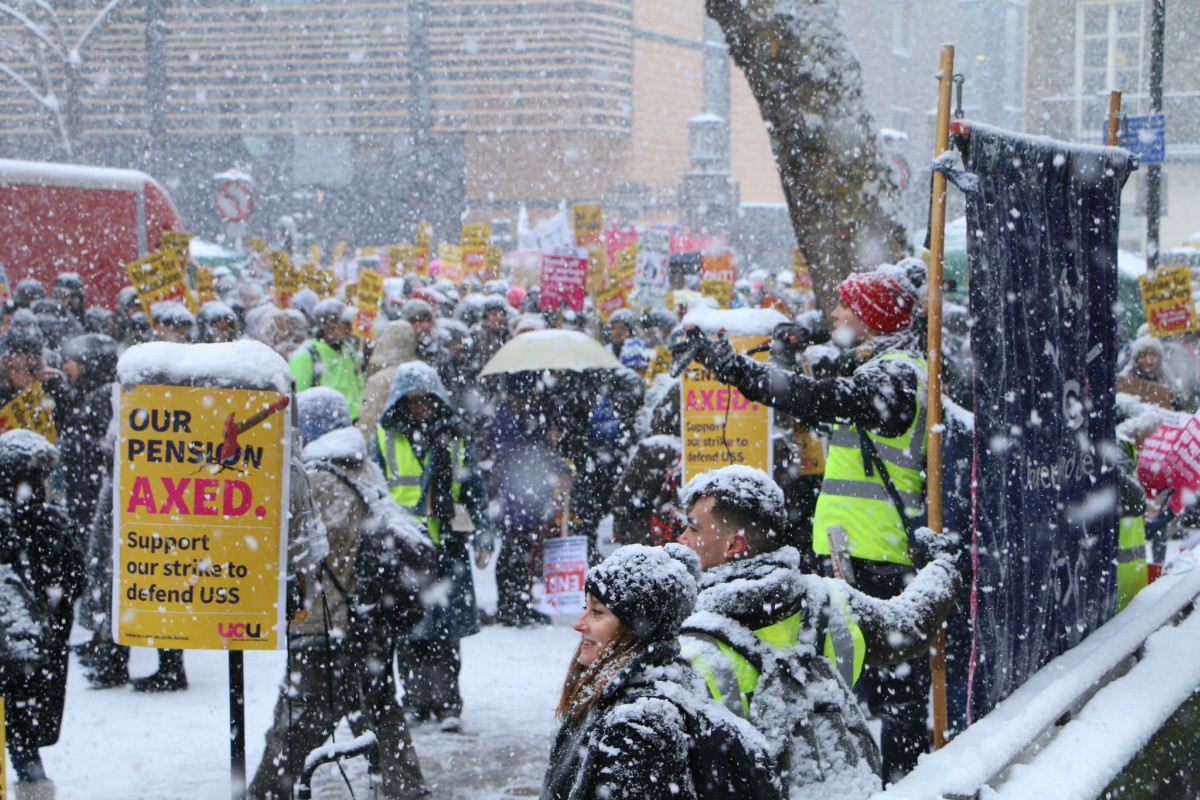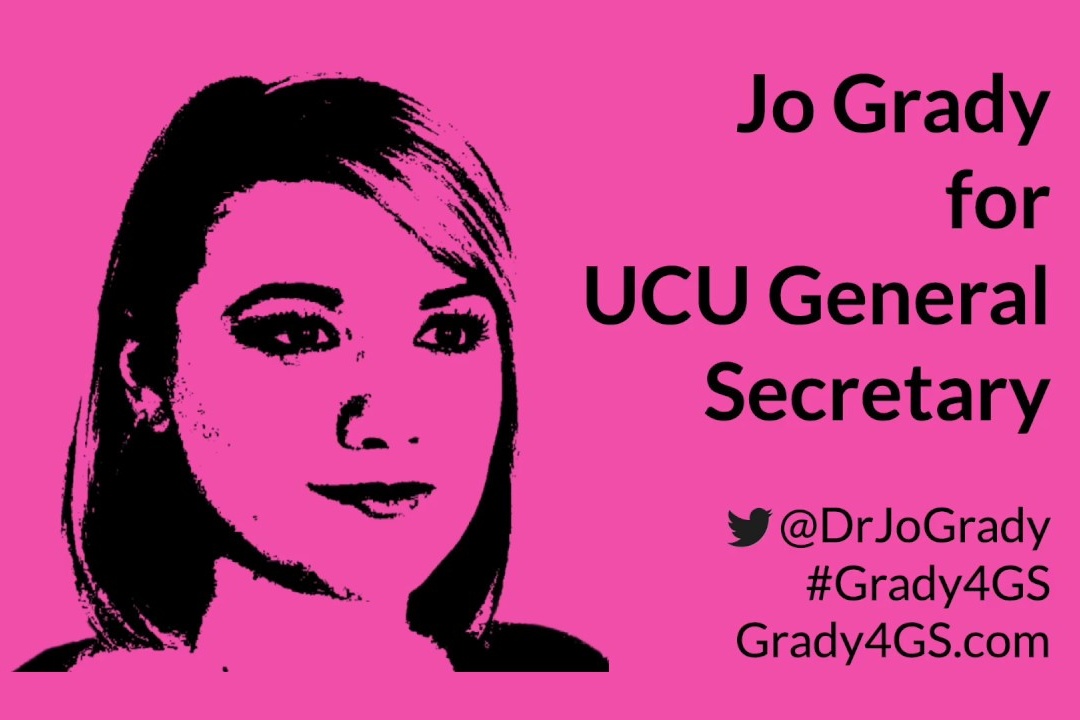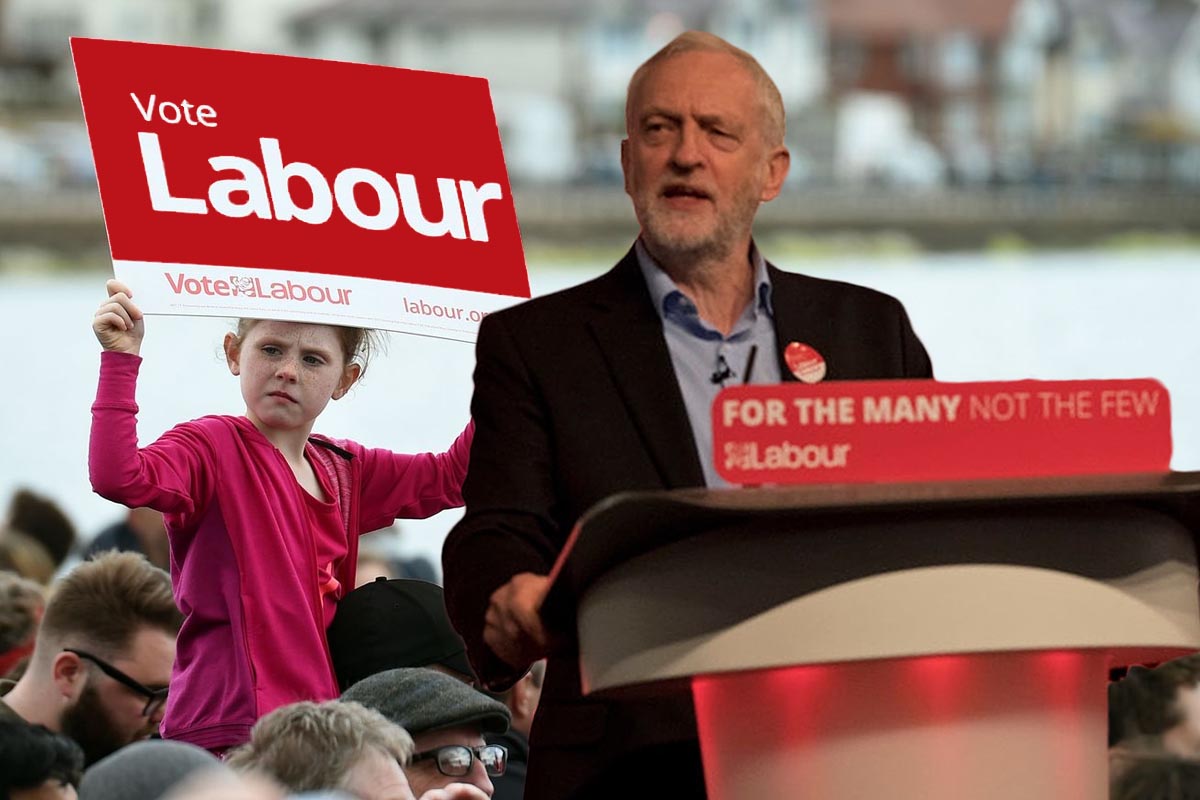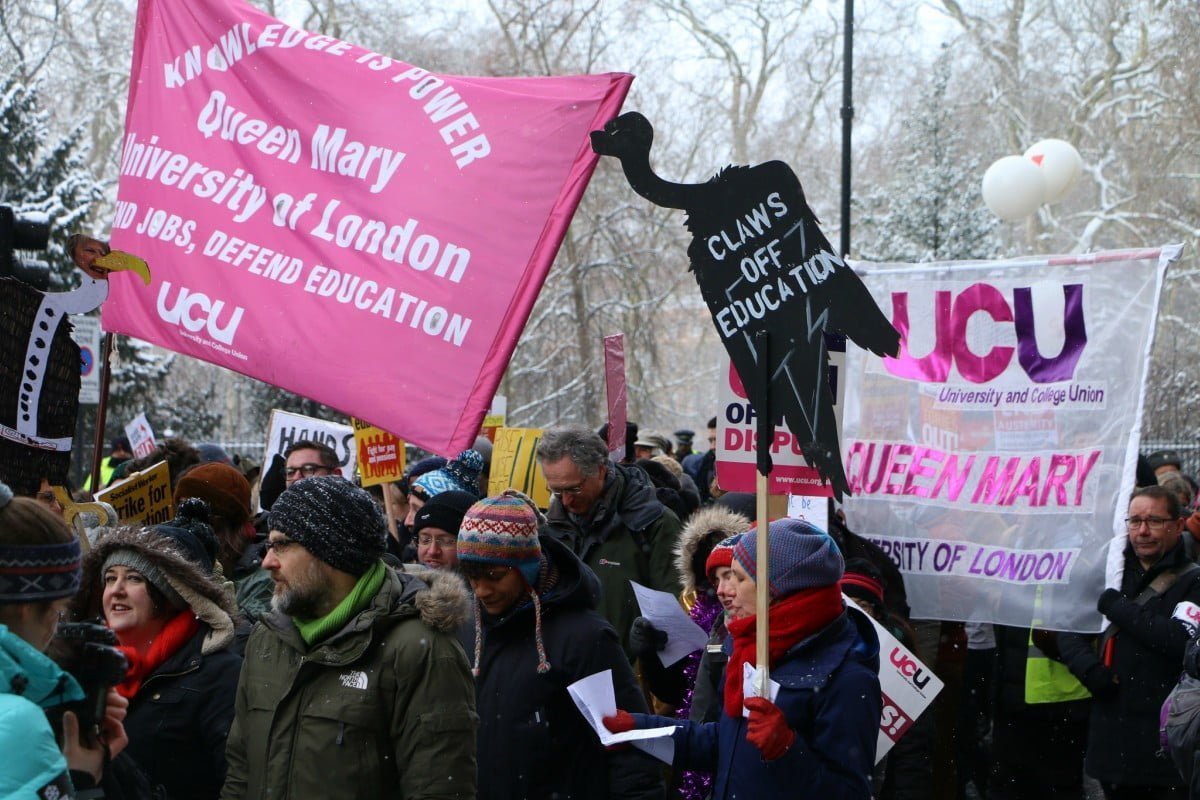UCU members have voted for a second round of pension strikes. With a new left leadership, a militant campaign with support from other striking unions could go far. But UCU should also link their dispute to the fight for a Labour government.
Members of the Universities and Colleges Union (UCU) have sent a clear message that their fight against pension cuts is far from over.
53 percent of eligible members took part in a ballot for a new round of strike action over attempts to butcher the USS pension scheme. The result was 79 percent in favour of striking. The vast majority of institutions punched through the draconian Tory Trade Union Act threshold.
This shows that the spirit of struggle displayed in 2018 – the biggest and most militant action in the union’s history – is back.
Lessons from last year
The 2018 strike saw massive picket lines up and down the country, paralysing the university sector for four full weeks. Lecturers endured heavy snow and press slander to resist changes to their pensions scheme that would leave them potentially thousands of pounds worse off in retirement.
up and down the country, paralysing the university sector for four full weeks. Lecturers endured heavy snow and press slander to resist changes to their pensions scheme that would leave them potentially thousands of pounds worse off in retirement.
While pension reform was the issue that ignited the strike, this impressive mobilisation rapidly brought a myriad of other issues to the fore: widespread casualisation; marketisation; exorbitant student fees; and bloated salaries for university bosses. All of these ultimately flow from the reactionary, pro-market policies enacted by Tory and Blairite governments.
The strike quickly acquired a political character, drawing in solidarity action from thousands of students and support staff. Unions representing other university workers passed motions of support for the strike, and these workers joined lecturers on the picket lines.
The Labour Party also declared its support, with John McDonnell appearing at picket lines to offer Labour’s solidarity to the striking lecturers.
As the strike radicalised further, union members voted for a ‘no detriment’ policy, in which they refused to accept any cuts of the USS. With strike action also being taken by further education staff and public sector workers, the potential for a sector-wide strike was possible.
Overcoming demoralisation
Unfortunately, this powerful movement was betrayed by the union’s leadership – particularly former general secretary Sally Hunt and her lieutenant Matt Wuddup. Having stitched up a sell-out deal with the university bosses’ organisation, Universities UK (UUK), Hunt and Waddup frightened and demoralised members into allowing the bosses to kick the can down the road for months of further ‘negotiations’.
Hunt promised that an ‘expert panel’ (including union representatives) would pick over the USS in order to come to some arrangement that would keep UUK and the pension providers’ investors happy, but with no cost to lecturers.
This was, of course, a total fantasy designed to demobilise the strike and buy the bosses breathing room (as we predicted at the time). But the ‘take it or leave it’ threat that refusal would mean imposition of the pension reform meant two-thirds of members took the deal.
This created a huge amount of demoralisation amongst the membership. This was compounded by the union tops’ antics at the subsequent 2018 national conference, in which they employed every dirty trick in the book – including threatening their own members with industrial action! – to dodge motions of censure and no confidence.
The ebbing mood was reflected in the failure to meet the threshold for a strike ballot over pay in October 2018. This negative ballot result was despite the fact that frontline staff have faced real-terms pay cuts, year on year, for about a decade. Meanwhile, senior executive pay has continued to skyrocket.
The problem was that nobody in the union trusted the same leadership that had just sold them down the river to lead them to success.
New leadership
 A victory was achieved by the newly radicalised layers of (particularly young and casualised) members this year, however, when left-winger Jo Grady thrashed Waddaup in the race for the position of general secretary in May, following Sally Hunt’s resignation.
A victory was achieved by the newly radicalised layers of (particularly young and casualised) members this year, however, when left-winger Jo Grady thrashed Waddaup in the race for the position of general secretary in May, following Sally Hunt’s resignation.
Grady is a product of the 2018 strike: she came to prominence through the picket lines and her USSbriefs website, which became a point of reference for activists during the struggle. The fact that she decisively booted out a representative of the old guard and outflanked the established (discredited) left faction candidate was a clear signal that members wanted a break with the past.
Grady’s election has clearly given a boost to members’ confidence. And coupled with an energetic campaign to get the vote out, this helped push the ballot over the line. After the announcement, Grady said:
“The results can only be interpreted as clear support for strike action over pensions, pay and working conditions. The ballots reflect just how unhappy and angry staff are at the state of higher education in the UK.”
This is a great demonstration that the radical energy of lecturers, who have slumbered for almost two years, but have not been exhausted.
Falling short
However, the scars of the last betrayal can be seen. Despite miserable wages for many starting lecturers in particular, a concurrently-run pay strike only saw a 49 percent turnout nationally.
The disaggregated balloting system (a scandalous policy accepted by the UCU years prior) meant that every institution was polled individually, meaning universities where the turnout was lower cannot legally participate in the national action.
Nevertheless, many individual institutions got over the line and will be striking over both pay and pensions.
While the showing was strong, it wasn’t as solid as last year, where 58 percent of eligible members took part, with 88 percent favouring a strike. Then, 61 institutions got over the line. This time, 43 universities (at the time of writing) made the threshold, and some big institutions that made the cut last time – including King’s College London and SOAS – fell short. At Oxford, the ballot threshold was short by four votes!
It is imperative that activists at the universities who missed the threshold push to immediately reballot, arguing that the national result will inspire confidence in activists still stinging and demoralised from the setback in 2018, who might not have voted.
Solidarity and support
Furthermore, despite the National Students’ Union undergoing a political lull, it was student solidarity that made all the difference in 2018 – giving lecturers the confidence to carry on their struggle as far as they did.
All the issues affecting students and staff alike (including marketisation and sky-high tuition fees) are as pertinent now as then. Every effort must be made to generalise the demands of the strike into a fight for the interests of students and university workers for their shared interests.
Encouragingly, a number of big unions – including Royal Mail workers in CWU and public sector workers in PCS – are currently engaged in their own disputes, opening up plenty of opportunities for joint solidarity action across the country.
This is not to mention the lessons struggles by support staff and cleaners at universities, who have won serious victories over outsourcing and working conditions in the past period. Their solidarity will be vital to the UCU’s success.
Finally, these ballot results come out alongside the announcement of the most important general election in a generation. On 12th December, voters will be posed a stark choice between the Etonian gangster capitalism of Boris Johnson, and the transformative, left-wing programme of Jeremy Corbyn.
Politicise the struggle
 UCU members must resist the temptation (which harmed the 2018 strike) to ‘depoliticise’ their action and make it ‘just about pensions’. The most assured way to win reforms across the whole sector would be putting a Labour government under Jeremy Corbyn in power.
UCU members must resist the temptation (which harmed the 2018 strike) to ‘depoliticise’ their action and make it ‘just about pensions’. The most assured way to win reforms across the whole sector would be putting a Labour government under Jeremy Corbyn in power.
Labour has already stated its support for the UCU, and would be far-more amenable to recognising their grievances. By contrast, a Johnson government will oversee cuts, marketisation and disinvestment that will make the ravages of the last period look mild by comparison.
From here, the union must state its support for a Labour government, and begin reaching out to students and workers’ organisations across the country.
The lessons of 2018 have been learned: lecturers are no longer going into struggle as an untested force, but as weathered veterans of struggle.
If we apply these lessons – with a left-wing leadership at our head that promises to be accountable to the grassroots – we can finish what we started almost two years ago. Then, as now, it’s not about pensions. It’s about using the collective strength of the working class and youth to rescue the education system from the rotten capitalist system.






